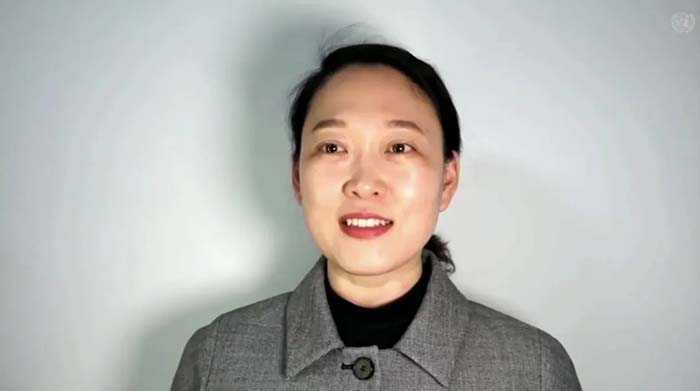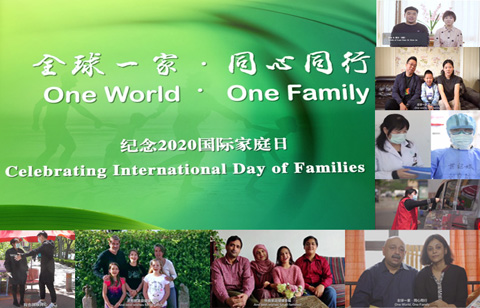Chinese Lawmakers Deliberate Law Amendment Allowing Couples to Have 3 Children
Date:2021-8-26 16:38:13 Views:Chinese lawmakers deliberated on August 17 a draft amendment to the Population and Family Planning Law during the 30th session of the Standing Committee of the 13th National People's Congress (NPC). They put forward suggestions on adopting active supportive measures, reducing the cost of childbearing, nursing and education, and guaranteeing equal employment opportunities for women.
In order to implement the decision of the Communist Party of China Central Committee and adapt to new population changes, it is very necessary and timely to revise the Population and Family Planning Law, said Shen Yueyue, Vice-Chairperson of the NPC Standing Committee.
The draft reflects the CPC Central Committee's decision on optimizing the birth policy and promoting the long-term balanced development of the population. It has made improvements in the implementation of the three-child policy, the abolition of social maintenance fees, the adoption of active birth support measures, and the reduction of the cost of childbirth, nursing and education. Shen agreed with these revisions and gave four suggestions:
— The draft's article 24 stipulates that the couples who bear children in accordance with the provisions of laws and regulations may receive the rewards of extended maternity leaves or other welfare treatments. The sentences "The specific measures shall be provided for by the State Council" and "The state supports the exercise of parental leave at the places where conditions permit" shall be added to that article. This will enable the State Council to regulate birth-related treatments in a coordinated way and empower local governments in relevant issues to certain extent.
- The draft's article 26 shall be added with "The state supports employers to provide opportunities to women at childbearing age by establishing and improving preferential taxation and social security systems to ensure equal employment for women." After the third-child policy is implemented, women may face tough conditions in employment because the cost of hiring women is higher than men's. During the annual "two sessions" in recent years, many NPC deputies and CPPCC members suggested that enterprises with a relatively large numbers of women employees should be given exemptions in taxation or allowance. Enterprises also expect that the state and local governments will issue policies that help reduce the cost of hiring women to ensure women's equal opportunity in employment.
- The draft's article 27 shall be added with "The state supports employers in provide nursery services and government agencies, public institutions and state-owned enterprises shall provide nursery services to employees." Childbirth, nursing and education, especially lack of nursery services for children 3 years of age or younger, have been prominent problems. Nursery services provided by government agencies, public institutions and state-owned enterprises can help promote the implementation of the third-child policy.
- The draft's article 18 says "The state advocates marriage, childbearing at the appropriate age as well as the improvement of birth outcome and child development. One couple may bear three children." Some expressions in the current law are incompatible to this article so it is suggested to study and make revisions to those expressions.
He Yiting, a member of the Standing Committee of the NPC, said that the difficulty in balancing the relationship between family and work is currently an important factor that is affecting women in childbirth. According to surveys, 34.3 percent of female employees have lower salary after they bear children, and 42.9 percent of them even have only half of the salary they had before childbearing. He recommended studying the impact of the three-child policy on women's maternity leave and employment, further improving related systems, creating an environment that is conducive to bearing children, and safeguarding women's employment rights.
"Having more children in general have big impact on Chinese women, who may face discrimination when finding jobs and getting promotion," says Jiang Xiaojuan, a member of the NPC Standing Committee. Refer to the practices of countries in Northern Europe where women's rights are relatively better protected, Jiang suggested areas where conditions permit to explore the offer of maternity leave in which mother and father have the same rights and responsibilities.
Member of the NPC Standing Committee Deng Li said survey results indicate that with women's overall education level and self-consciousness increasing, the price paid for childbirth and nursing have an important impact on their willingness to bear children. Therefore, Deng believed that in this revision of the law, attaching importance to the protection and needs of women's rights and giving full consideration to women's development is key. Deng suggested that the state should take supportive measures to encourage employers to provide employment opportunities for women. Deng also proposed that the state should encourage and support employers, urban and rural communities and villages to provide nursery services to employees and families.
Member of the NPC Standing Committee Xu Anbiao said that it is necessary to protect the legal rights of childbearing women, especially to provide employment services and guarantees for women whose employment is interrupted due to bearing children, so as to promote the realization of a moderate birth rate.



